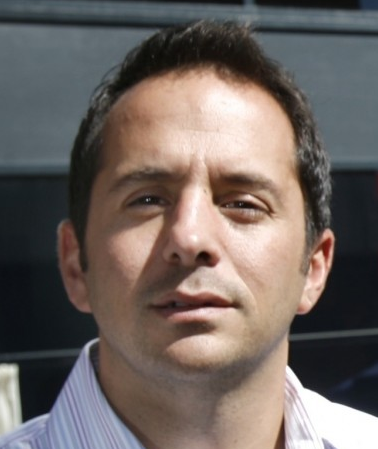Did Hasbro’s Verrecchia Have a Conflict When He Voted to Fund $75M to 38 Studios
Monday, September 28, 2015
In 2007, Hasbro signed a major partnership agreement with Electronic Arts (EA) — an agreement that would help transform the Rhode Island toy company from a product-based manufacturing company to an interactive and entertainment focused multi-billion business. The deal has been worth hundreds of millions for the two companies. The CEO of Hasbro at the time was Al Verrecchia.
EA is the same company that had a major partnership and investment in 38 Studios. In a document released by Judge Michael Silverstein, a May 2010 memo was included that outlined the multi-million deal between EA and 38 Studios for the funding of $50 million and royalty structure that could exceed $100 million. The EA agreement was material to the state of Rhode Island’s financing. Of course, the state’s financing of $75 million to 38 Studios was a de facto a stabilizing force to EA.
EA in Focus
GET THE LATEST BREAKING NEWS HERE -- SIGN UP FOR GOLOCAL FREE DAILY EBLASTA press release issued by EA in May 2010 said, "We are thrilled to be working with 38 Studios. The world of RPG gaming is so rich and it is a perfect complement to our partners and title portfolio in EAP," said David DeMartini, Senior VP and General Manager of EA Partners. "Project Mercury is bursting with first-rate talent, with passion that spans across the board.” Project Mercury was the name of 38 Studios’ project.
The relationship between EA and 38 Studios was core to the viability of Curt Schilling's company. It would be difficult if not impossible for 38 Studios or any gaming company to bring a game to market without EA's distribution structure.
A confidential memo between top entertainment law firm and 38 Studios’ CEO Jen MacLean outlined a complex agreement that provided for EA to provide funding in exchange for full repayment and significant portions of the royalties generated — 70% to EA under $100 million in sales revenue. As GoLocal has previously reported, in the time period of May of 2010, as the $75 million bond statute and EDC staff was developing the strategy, 38 Studios had limited cash and was straining to make payroll.
During the course of Verrecchia’s deposition, he defended his vote, “When I voted for the bonds, I believed that the business model and financial projections were sufficient to complete the development of the game and and get it to market. So that was an important consideration in selling the bonds.”
For Verrecchia, at the time of the 38 Studios vote he was the Chairman of a major public company who had a material and strategic relationship with EA. He was serving on a public board voting for $75 million in funding for a company that had a $50 million investment from the same company with which Hasbro was partnering.
But, why Verrecchia voted at all is on 38 Studios funding is unknown. With the complexity of the business relationships between Hasbro and EA, why he did not recuse himself from particapating in the 38 Studios matter is unclear.
Verrecchia had trained as an accountant at URI and had joined Hasbro in 1965. He had helped both Stephen and Alan Hassenfeld grow the Pawtucket-based company to the second largest toy company in the world with a value of over $4.8 billion.
How Important was Verrecchia’s EA Deal to Hasbro’s Viability and Growth
The agreement with EA was negotiated under the leadership of Verrecchia, the same man who who served as Vice Chairman of the RI Economic Development Corporation Board. The Chair of the EDC Board was fellow RI-businessman turned politician Don Carcieri.
The EA agreement for Hasbro was one major step in transforming the company from toy manufacturing company and selling their products in Walmart, Kmart and Toys "R" Us to transforming Hasbro to higher margin electronic and interactive games. Just one year after the Hasbro and EA agreement was signed, Hasbro was realizing the benefits of the deal.
In Hasbro’s Annual Report in 2009, the company was trumpeting the financial impact of the EA deal, “Since our first digital games from EA hit the market in 2008, EA has sold at retail eight million units of Hasbro branded digital games. In 2009, EA successfully launched games for brands from LITTLEST PET SHOP to TRIVIAL PURSUIT to NERF to FAMILY GAME NIGHT. For mobile users, Hasbro brands, including BATTLESHIP, MONOPOLY and SCRABBLE, were top-grossing titles on the iPhone App Store during the 2009 holiday season and both MONOPOLY and SCRABBLE have remained in the top 50 consistently since launch. With great family and casual brands such as these, EA and Hasbro are well positioned to leverage the evolution underway in the digital gaming market place, as mobile and online games grow to represent a larger portion of the total digital gaming opportunity.”
In part due to the agreement with EA, Hasbro’s stock rose from a $27 per share stock to finishing 2010 as a $48 stock.
Was Voting for 38 Studios Funding a Conflict
Efforts to reach Verrecchia directly and through Hasbro were unsuccessful. However, in the documents released and in Verrecchia’s two days of depositions, the former Vice Chair of the EDC board outlined how he had connected key Hasbro staff to assist EDC staff with the review.
In part, Verrecchia defended his vote for 38 Studios because “The RPG (role playing game), from a financial perspective, was funded by EA, and we knew that. And we knew most of the revenue coming in initially would have to pay off the EA loan. So I was more concerned with the market success of the RPG to support the MMOG (massively multi-player online game).”
Verrecchia helped to support EDC staff by introducing top staff to key people at Hasbro who worked with EA. According to one Saul email identified in Verrecchia’s deposition, “You (Verrecchia) agreed to introduce us to Mark Blecher (VP of Digital media and gaming) as part of the 38 Studio’s due diligence.”
In one exchange between one of the attorneys and Verrechia during his deposition, he was asked, “So was it reasonable for you to assume when you voted in favor of the 38 Studios transaction that 38 Studios would be able to reach a distribution agreement with EA for Copernicus?”
Verrecchia said, “Yes…They has a distribution agreement on the RPG where EA was pre funding $50 million. So they weren’t just another guy off the street. EA had already an arrangement…as I though it was quite reasonable if we got the game to completion that EA would distribute…”
Hasbro and EA Extend Agreement
In 2012, 38 Studios ran out of money despite Rhode Island's investment of $75 million, ran out of money and could not find additional investors.
By 2013, Hasbro and EA announced that they were extending and expanding their partnership. "Over the past six years, Hasbro and EA have collaborated to develop some of the most popular digital games based on Hasbro's best-selling global game brands, including MONOPOLY, SCRABBLE and THE GAME OF LIFE," said Mark Blecher, Hasbro Senior Vice President and General Manager, Digital Gaming and Corporate Development. "The next phase of our relationship will build on this tremendous success and is specifically focused on leveraging Hasbro's rich game brands with EA's leadership in the mobile space. Our relationship with EA for mobile is an integral component of our digital strategy for developing Hasbro brands across gaming platforms."
Related Slideshow: Seven 38 Studios Facts You Would Not Believe
Here are the seven facts that you would not (want to) beleive about the 38 Studios deal.
Related Articles
- 38 Studios Boss Zaccagnino’s Deposition and Exhbits
- NEW: 38 Studios to be Released Today - See All the Documents on GoLocalProv
- Gov. Lincoln Chafee’s 38 Studios Deposition and Exhibits
- Moore: RI’s 38 Studios Economy Breeds Unfairness
- Judge Turns Down Wells Fargo’s Request for 38 Studios Redactions
- 38 Studios Documents to be Unsealed
- Tens of Thousands of 38 Studios Documents Being Catalogued for Release
- The Players in the 38 Studios Saga
- Where Has Kilmartin Been on 38 Studios, Corso, and Doyle?
- Gov. Gina Raimondo’s 38 Studios Deposition and Exhibits
- The Big 38 Studios Document Surprise is No Deposition from Curt Schilling
- Insider Michael Corso’s 38 Studios Deposition and Exhibits
- NEW: 38 Studios Defense Has Run up $20M+ in Legal Fees, Says RI’s Lawyer
- Seven 38 Studios Facts You Would Not Believe
- Guest MINDSETTER™ Ken Block: Understanding and Fixing What Went Wrong With 38 Studios
- Moore: Speaker Mattiello Should Resign Over 38 Studios
- 38 Studios Documents Unveil Carcieri, Fox and Other Leaders Lied About Deal
- One 38 Studios Document Shows Why RI’s Investment Was Simply Absurd
- Governor Donald Carcieri’s 38 Studios Deposition and Exhibits
- Former Speaker Bill Murphy’s 38 Studios Deposition and Exhibits
- Speaker Gordon Fox’s 38 Studios Deposition and Exhibits

















